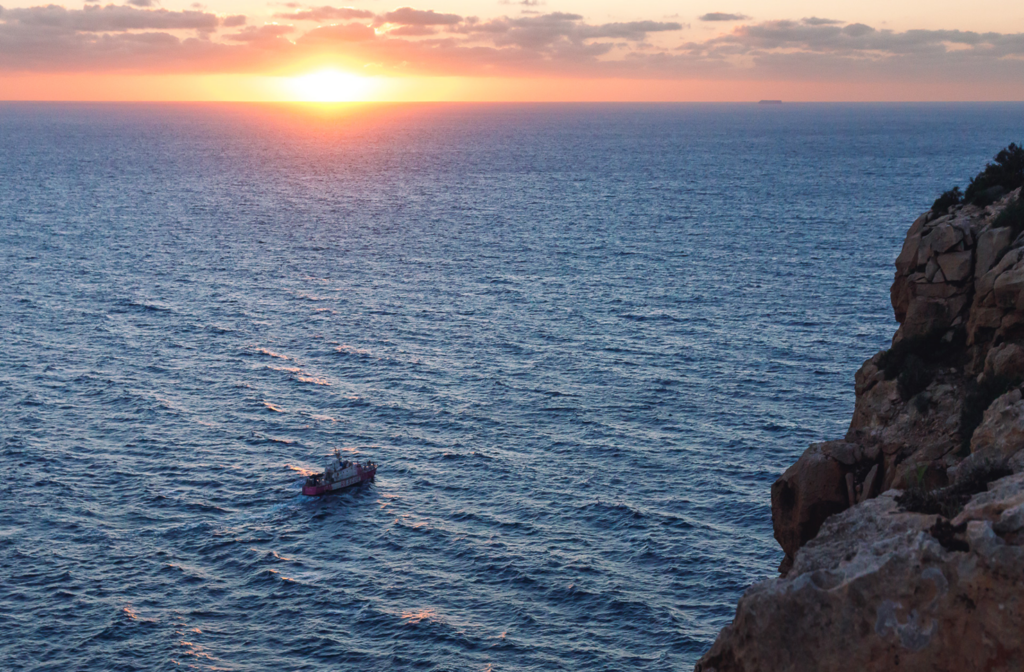By Medititerranea Saving Humans
The new rightwing government of Giorgia Meloni in Italy immediately presented itself, as many feared, with the hard face of “Law & Order”. Not only on migration, however. On the contrary, within two weeks of taking office on October 22nd, Italian police were ordered to assault students at the University of Rome, the special measures of life imprisonment were reinforced and a new official “anti rave-party” law was approved, which in fact can be used to hit promoters or participants in any spontaneous rally with sentences of three to six years in prison. A substantial attack on the constitutional freedom of expression and demonstration is then taking place.
Spearheading these initiatives is the new Minister of the Interior, the “technician” (formerly a senior police officer and career prefect) Matteo Piantedosi. He is by no means new – between 2018 and 2019 Piantedosi was Matteo Salvini’s chief of staff at the same ministry, also being the inspiration and practical executor regarding the “closed ports” policy of the time. This time, Salvini has become the Minister for Infrastructure and Transport, thus holding political responsibility for the activities of the Coast Guard and Port Authorities, including the Maritime Rescue Coordination Centre in Rome. The circle is completed with the new Defence Minister, Guido Crosetto (FdI), the lobby-man for the Italian military-industrial complex including Leonardo and Fincantieri, and their significant vested interests in African and Middle-Eastern countries.
As soon as he took office on October 24th, Piantedosi issued a “Directive” addressed towards the heads of the various police forces and the Coast Guard, claiming that rescue operations carried out by the civil fleet ships OCEAN VIKING and HUMANITY 1 took place in “a manner not in line with the spirit of European and Italian regulations on security and border control and the fight against illegal immigration.” In the directive, Piantedosi asks for the gathering of all useful elements towards “evaluating” the possible application of a ban on the ships from entering Italian territorial waters, still provided for by reformed security decrees.
These are very vague statements, though sufficient to justify the Ministry of Foreign Affairs sending a formal diplomatic act – the “Verbal Note” – to the embassies in Italy of Norway and Germany, the flag states of the two ships concerned. These further documents mention “delays and non-communication” to the Libyan, Maltese, Italian and flag state SAR authorities. This refutes any “responsibility of the Italian authorities for the identification of the port of disembarkation of the shipwrecked persons” and instead “urges” the governments of the flag states to take action regarding the safe harbour.
The legal arguments used by Minister Piantedosi are very weak, since both the OCEAN VIKING and HUMANITY 1 have always operated in full compliance with the conventions of international maritime law, promptly notifying all relevant coordination centres about any search and rescue operations in progress. But the Italian government’s political objective seems essentially to be singular – attempting to indicate the exclusive responsibility of a ship’s flag state for disembarking any survivors on board. This is truly in violation of the letter and spirit of international law, which instead demands the disembarkation of persons in the nearest place of safety within the shortest possible time.
While the ships endure yet another standoff with the Italian state, Piantedosi has explained the governmental strategy in several interviews – to bully the people on the move, who have already suffered terrible stays in detention in Libya as well as the deadly risks and fatigue of the crossing, and to force the civil ships to wait for longer periods offshore, towards achieving the political aim of increasing pressure on other European states to boost their own “relocation” numbers. Curiously demanded, indeed, by a rightwing spectrum that has always opposed a reform to the Dublin regulations which would be geared towards freedom of movement and increased self-determination within the European space.
However, this is not the only paradox which is being created regarding the situation: while civil ships such as the OCEAN VIKING, HUMANITY 1 and GEO BARENTS are stranded offshore, during one fortnight at least 3.000 people were rescued at sea and landed in Italy by patrol boats of the Italian Coast Guard, Guardia di Finanza and even Frontex units, under the coordination of the Italian MRCC in Rome. This is as hundreds of others also arrived independently in Lampedusa and along the Italian coast.

Picture: David Lohmueller, the Louise Michel leaving Lampedusa to reach the rescue zone
This shows clearly that the reasons for such an escalation in the brutal treatment of people on the move and the direct attacks on civil fleet ships are essentially political, propagandistic and ideological. We have seen the first steps of this violent attack take place so far and must unfortunately expect further dangerous moves in the coming weeks and months. Particularly since the Italian government seems to be incapable of responding to multiple oncoming economic and social crises, migrants and civil rescue are always an easy factor for “mass distraction” attempts and a convenient scapegoat in difficult times.
For these reasons, the reaction to this escalation must be as broad, timely and effective as possible. It must also exist on several levels: on the international social and political scene, on the legal level, as well as in Italian society and public opinion.
The vast dimensions of the ongoing attack on the rights of all show how the battle for freedom of movement can involve ever larger sections of society. Two years ago, out of the clash with the “closed ports” policy, we all emerged stronger and more aware. The valiance of our principles and actions, the substantial unity in the articulation of our differences, the offensive use of law, and a certain strategic and tactical intelligence can once again all prove to be powerful weapons in defence of the fundamental rights of all.



